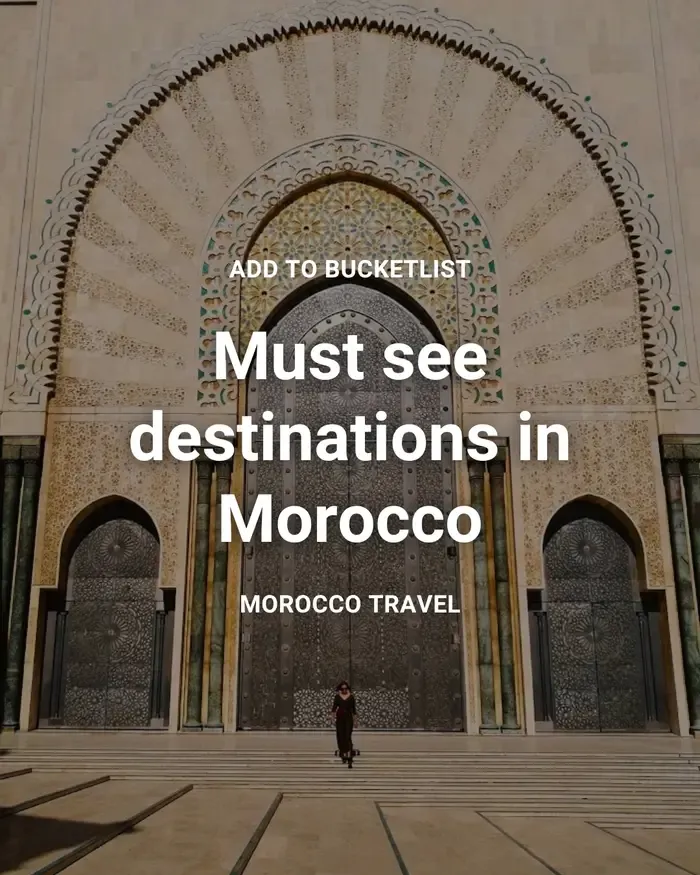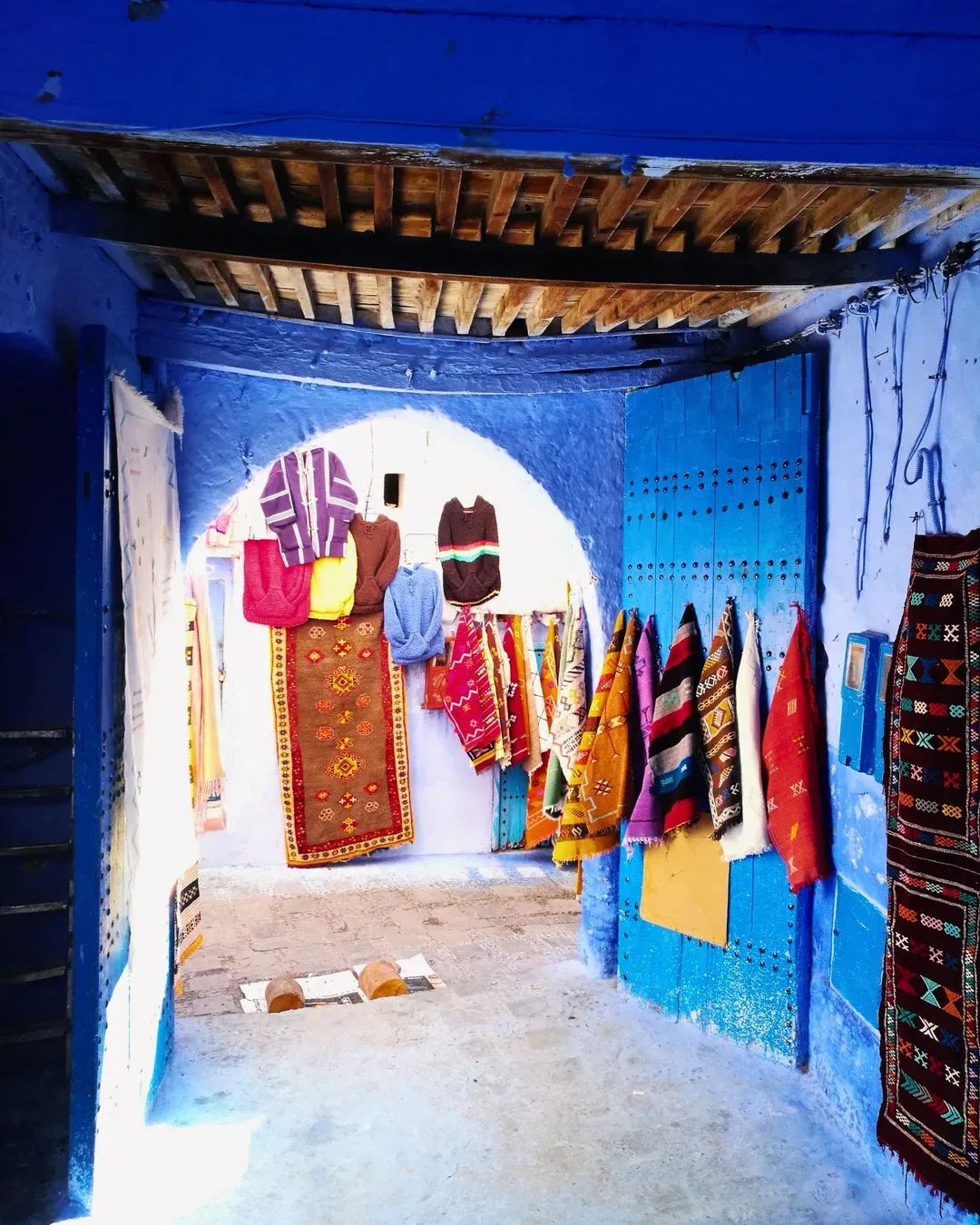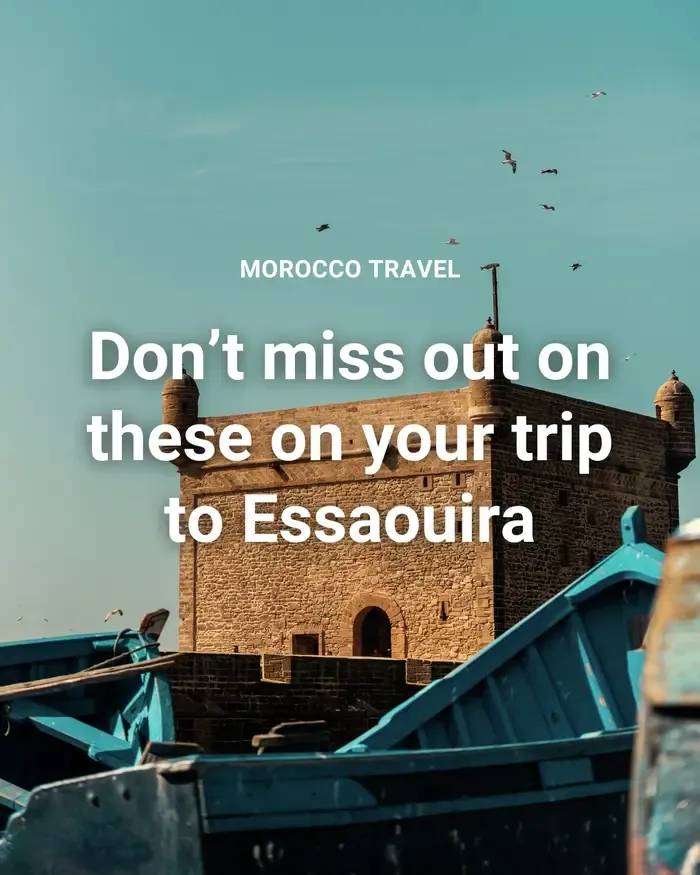Morocco Travel tips | Morocco Travel advice for first-time visitors
Written by: Sini Hietaharju, Master of Tourism Research & Slow Traveller
> Essential Morocco travel tips for first-time visitors
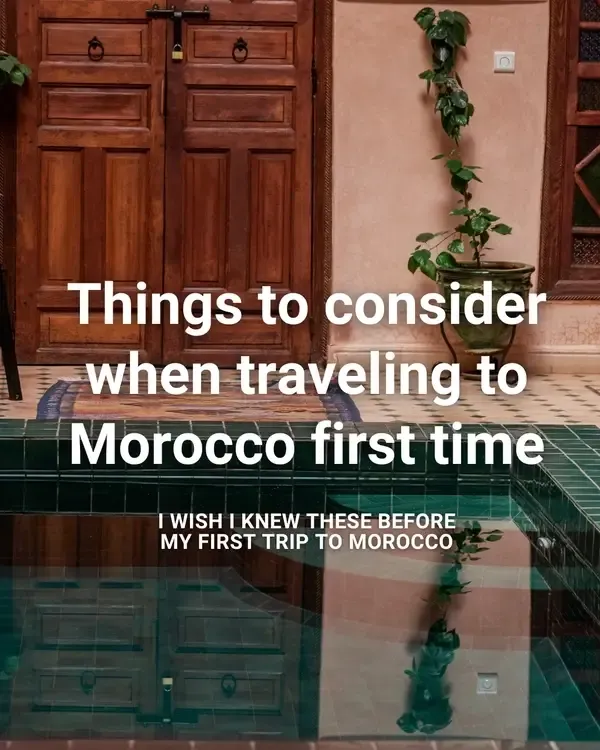
Morocco Travel Guide – The best travel tips for Morocco
Since Morocco is a big country and there is a lot to see, it is a good idea to decide in advance which destinations are a must for you and which are not.
Due to cultural differences, there is also a list of things that knowing in advance will make your trip much easier.
In this article you will find everything you need to know!
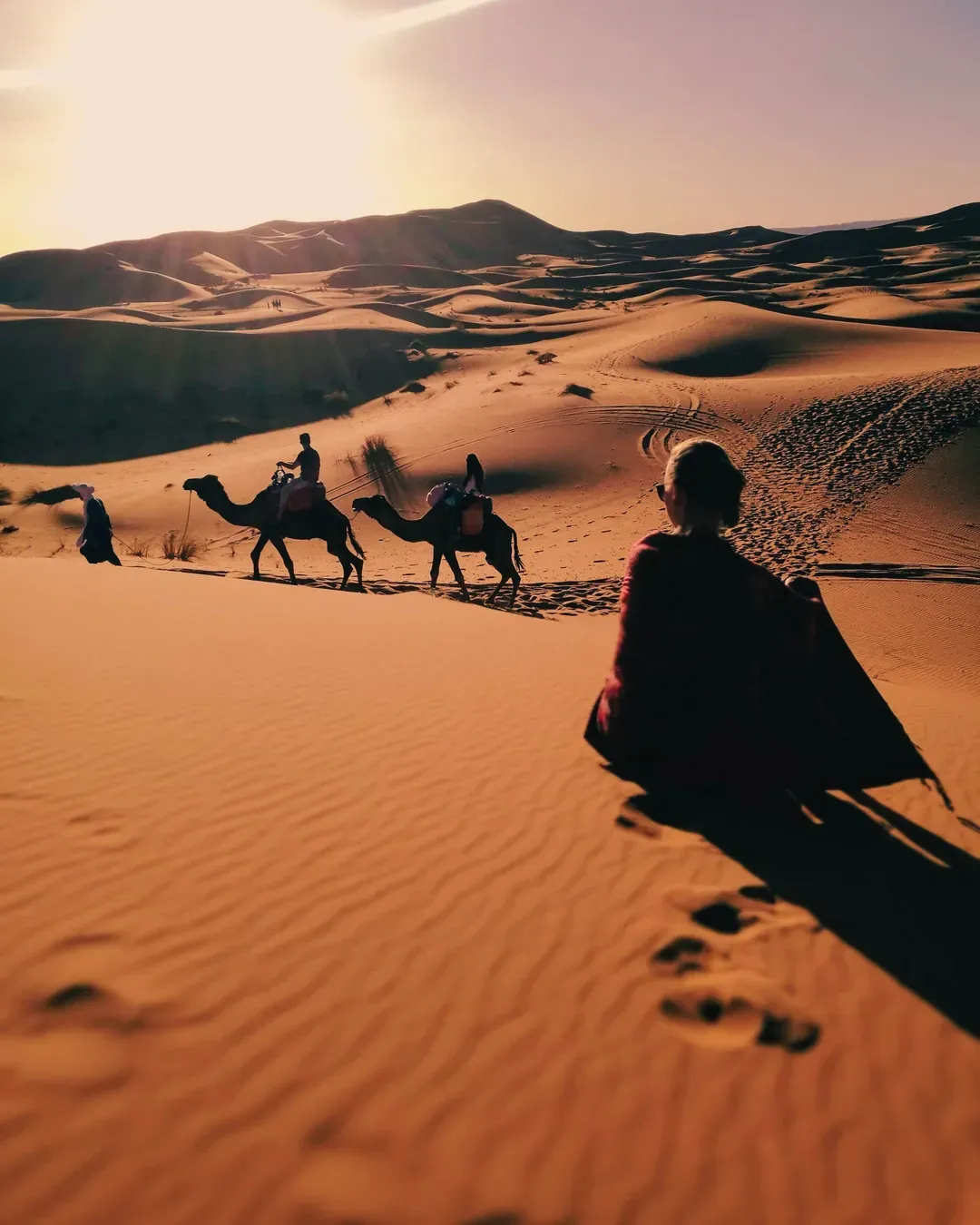

Language: Arabic, French

Area: 458,730 km2 (1.3 x Finland)

Capital: Rabat

Religion: Islam (Sunni)

Currency: Moroccan Dirham

Population: 37.8 million
Morocco Travel Guide - What to Know Before You Go
This list is for first-time travelers to Morocco. I'm trying to include the "obvious" things, as there are plenty of cultural differences, although Morocco is surprisingly tolerant and diverse for an African country.
Transportation and arrival in Morocco
When you arrive in the country, you must fill out an arrival declaration at the airport.
This must include the address where you will be staying for most of your trip and for how long.
You can fill out and print the entry form in advance here: https://www.onda.ma/form.php
Taxis or shared taxis are a cheap and convenient means of transportation in Morocco. However, please note the following:
Ask for the taxi price in advance
Make sure you have cash in dirhams with you as you can't pay the taxi by cash
Pro tip: If you don't want to get cash at the airport in pricey currency converters, simply ask the taxi driver to stop at ATM on the way to your accommodation
Make sure the driver knows how to get to your destination. This way, you won't have to navigate using mobile data or get lost. Also, download offline maps of your destination to your phone before you travel.
When taking a shared taxi, the price depends on how many people you share it with. If you want to save money, make sure the car is full. Otherwise, you will pay for empty seats (and that is not so ecological). Often, drivers wait for others to get on board with the same destination. Alternatively, you can ask to leave immediately and pay for the empty seats as well.
You don't have to pay separately for gasoline (although they might try that).
Always keep your passport safely with you. Drivers may ask for it to prove that you are legally in the country.
In longer distances, the driver may want to take you to all the tourist attractions along the way, such as souvenir shops, cafes, restaurants, etc. You can relax and enjoy it or you can say, hey, let's move on to your destination. This cannot be completely avoided on long trips, as the driver also needs breaks. I think this is more common on organized tourist bus tours. I wouldn't recommend them to anyone. 😀
In general, I recommend a shared taxi for getting from one place to another in Morocco
Tips for Morocco – language, dressing, internet use, alcohol, visa, adapter, hygiene
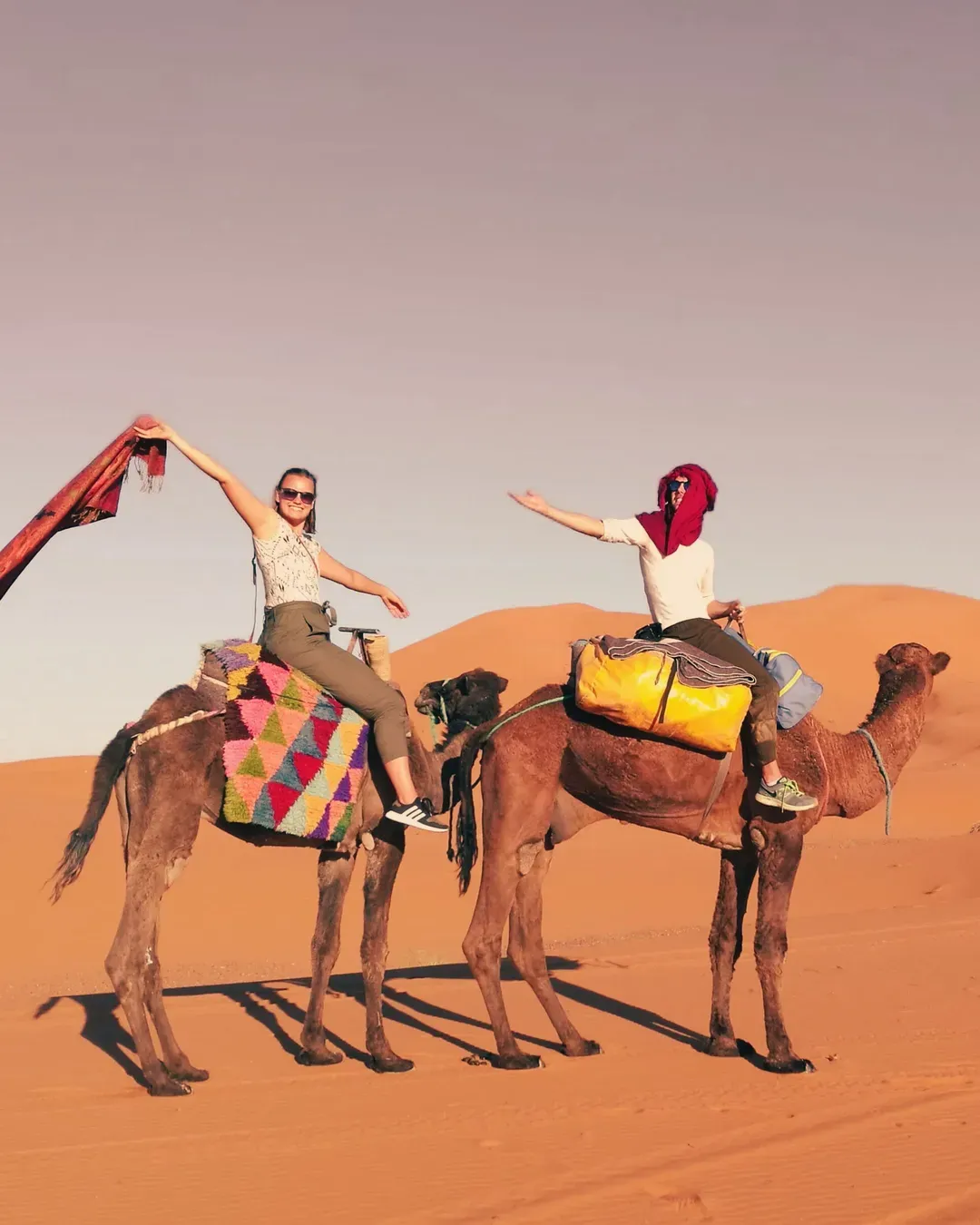
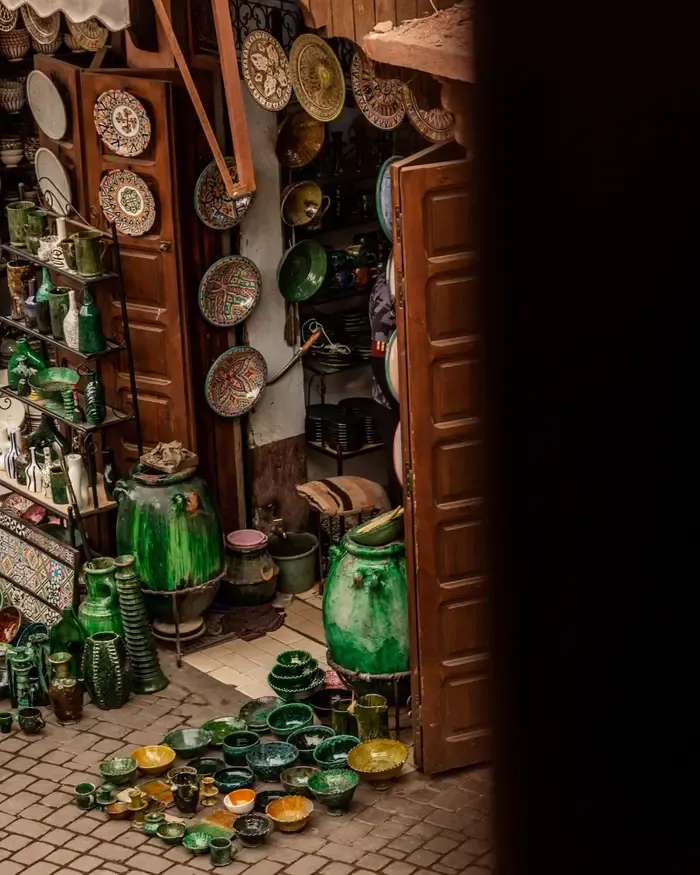
What language is spoken in Morocco?
In Morocco, people speak French and Arabic. It helps a lot if you know the basics.
Of course, the more touristy the destination, the more you can communicate in English and with pantomime.
However, basic French helps a lot, and maybe a few words of Arabic too.
Video: Top 20 most important phrases in French for travel
Basic Arabic vocabulary
In English
In Arabic
Thank you
Shukran
Yes
Naäam
No
Iaa
Sorry
Aläafw
You are welcome
Äafwan
Hey
Salam Alykum
I don't understand
Anaa laa afham
More
Aktar
Less
A all
Now
Delwati
Later
Baden
Where is toilet?
Fen el-Hammam?
Salam Alaikum literally means peace be upon you, but is used as a general greeting
Dressing in the Muslim country of Morocco
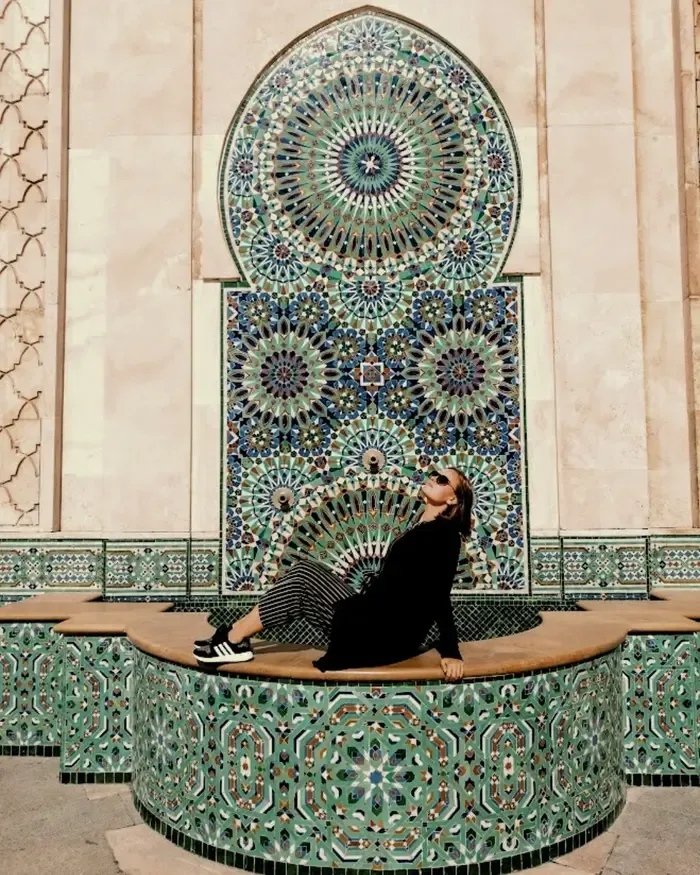
Generally speaking, the more touristy the area, the more carefree you can be about your clothing.
Unfortunately, women should wear a little more covering up, mainly to feel a little more comfortable, although you can't avoid stares.
So, clothing that covers the knees and shoulders is recommended, but not mandatory.
I recommend bringing mostly loose clothing, such as harem pants, T-shirts, long dresses and a scarf.
For example, I also brought a open back dress, but I didn't find it comfortable to wear.
On the other hand, I saw other foreign women in mini shorts, so there is no real dress code in Morocco, except as an unwritten rule.
Internet use in Morocco
Please note that Morocco is not part of the European data roaming, so using the internet costs a lot, at least with a Finnish subscription.
(By this I mean about 150 euros for a few minutes of mobile data.)
So it is worth choosing accommodation where Wifi is available.
If you are staying in Morocco for a longer period of time, it is worth buying a local prepaid subscription.
Also, download offline maps to your phone so that you can navigate even a little without the internet.
If you want to have access to interner throughout the holiday, I recommend getting the local sim card. Normally you can get this at the airport right after exiting the security.
Alcohol use in Morocco
Alcohol is not available everywhere, but mostly only in restaurants aimed at tourists.
According to Moroccan law, the consumption of alcohol is prohibited for Muslims, but the matter is no longer so black and white.
However, alcohol is not available everywhere, but mainly only in restaurants aimed at tourists.
Usually in Riads and hotels you can ask where you can enjoy wine with your food if you want.
Most often, the answer to this is the hotels and riads.
It can also be a good idea to enjoy Jägermeister etc. Drinks to kill some bacteria. You can buy it at the airport.
Do I need a visa for Morocco?
As a EUcitizen, you do not need a visa for a trip of less than 90 days. Please check separately the visa requirements for citizens of other countries.
What type of electrical plug is used in Morocco?
The plug is the same as in EU. the power plugs and sockets are of type C and E.
So from EU you don't need an adapter with you.
The main voltage in Morocco is 220 volts and the frequency is 50 Hz.
Hygiene in Morocco – what to avoid
You'll miss a big piece of Morocco if you only eat at restaurants aimed at tourists.
The hygiene level in hotels, Riads and restaurants aimed at foreigners is good, and there is little risk of stomach diseases.
A good way to kill bacteria is to strengthen your intestines with lactic acid bacteria before the trip and possibly a few shots of vodka/Jägermeister during the trip.
It is often recommended to avoid ice cubes and street food, but I think you are missing a big piece of Morocco if you only eat in restaurants aimed at tourists.
I personally recommend avoiding meat (or at least making sure it is fully cooked) and non-bottled water.
Money - Price level in Morocco, bargaining and other things to consider
In Morocco, the price level varies slightly depending on whether you are in a touristy place like Marrakech or a smaller place like Essaouira.
Some price examples in Morocco:

Meal in a restaurant, aimed at tourists
18€

Taxi 1km
<1€

Meal at a local restaurant
4€

Litre of mil in store
0,65€

Beer in a restaurant
2,5€

Beer in a store
2€

Cappuccino
1,5€

Wine bottle in a store
6,5€
Accommodation – prices in Morocco
4€

Hotel accommodation
65€ (10€-300€ depending on level, time and location)
For example, the prices of riad accommodation vary quite a lot, but for less than a hundred you can get a really good and comfortable place to stay with breakfast.
We traveled off-season, when prices are lower and you can get wonderful riad accommodation for as little as 30€/night.
Of course, luxury riads in Marrakech, for example, cost up to 300€/night, while you can get a hostel for 10€/night, so of course it depends a lot on your travel style.
It is worth looking for accommodation through Booking – I always book my accommodation through it.
Eating out – Prices of eating out in a restaurant in Morocco
Eating out in Morocco is relatively cheap, but again the price level depends on whether you are in a tourist-friendly area or not.
If you want to save money on food but still have a great taste experience, opt for local restaurants and street stalls.
For example, in the Medina of Casablanca we had delicious homemade veggie steaks with a variety of side dishes for about €3 per person.
In Marrakech, a “regular” tourist restaurant dinner for two costs €30-50.
If you want authentic Moroccan food at a low price, you can choose a Riad, which includes dinner in the price.
Personally I did not get any stomach issues in Morocco, and I've been there 8 times (and got sick in Asia and Egypt).
So from my personal experience Morocco is quite hygienic (or their bacteria just fits for my gut system).
Morocco and money – other things to note
The currency in Morocco is the Dirham and most purchases are cash transactions, so make sure you have Dirhams in cash
Do not carry large amounts of cash with you, but use a locked locker if one is available at your accommodation.
Get dirhams from regular ATMs instead of currency converters, which charge a hefty fee.
Even a few blocks away from the tourist areas, prices drop drastically. For example, Blue City in Chefchaouen is relatively cheap, but go a few blocks away to the local area. You'll get a much more authentic experience and cheaper prices for food and other things.
Haggling in Morocco
You never know what a good price is, but you can always bargain a little.
Bargaining is an essential part of trading and it would be foolish not to do as the locals do.
Make your offer and walk away if you don’t get the price you want. You’ll get a lower price.
You never know what a good price is, but you can always haggle a little.
So think in advance how much money you’re willing to spend on a particular item.
Sometimes it’s okay to pay a little more than haggle more and more, you’re probably on holiday and most Moroccan goods are of good, handmade quality that’s worth paying for.
However, in addition to local crafts, there are a lot of cheap knockoffs and Chinese junk sold on the streets of Morocco.
It’s clear that my opinion is to avoid buying them – the goods don’t last and are not responsible.
Another good way to know the price points is to ask the prices first day, and decide on what you go for next day so you know more or less what's realistic and where to begin the bargaining
Example price for a one-week trip for two to Morocco
Below you can see an example price for our one-week holiday to Morocco.
Please note that this price list is only a guide and prices can vary greatly depending on the time of year, the type of accommodation you want to stay in and the restaurants you eat at.
Note: The price list excel is from 2018 and we chose mid-range places.So now you need to add maybe 30% more on top of the prices and adjust according to your travel style, whether it's budget, mid-range or luxury.
Of course, flight prices are also a big factor.

Safety in Morocco – keep these things in mind
For female travelers:
I hate that in the 2020s I still have to write a separate section for female travelers, but I think these things are worth mentioning.
1. If you are a woman, dress appropriately. Of course, it is not good that these things are still being considered in the 2020s, but you will feel more comfortable when you are not walking around in miniskirts. On the other hand, wearing a miniskirt is not condemned either, as this is a tolerant country in that sense – but be prepared for even more staring than usual.
2. Some cafes that are typically filled with men may not accept women as customers. Or you may be able to get in, but you may not feel very comfortable there. Just be aware and pay attention to what's going on around you. It's hard to say what it feels like as a solo female traveler, because my situation was made easier by the fact that I was traveling with a boyfriend.
3. Don't be too naive and trust people too easily. In Morocco I generally felt safe and the people were nice and hospitable and compared to Egypt for example, the experience was 10 times better. Just don't be too naive, you know what I mean.
Morocco Weather – What is the Best Time to Travel?
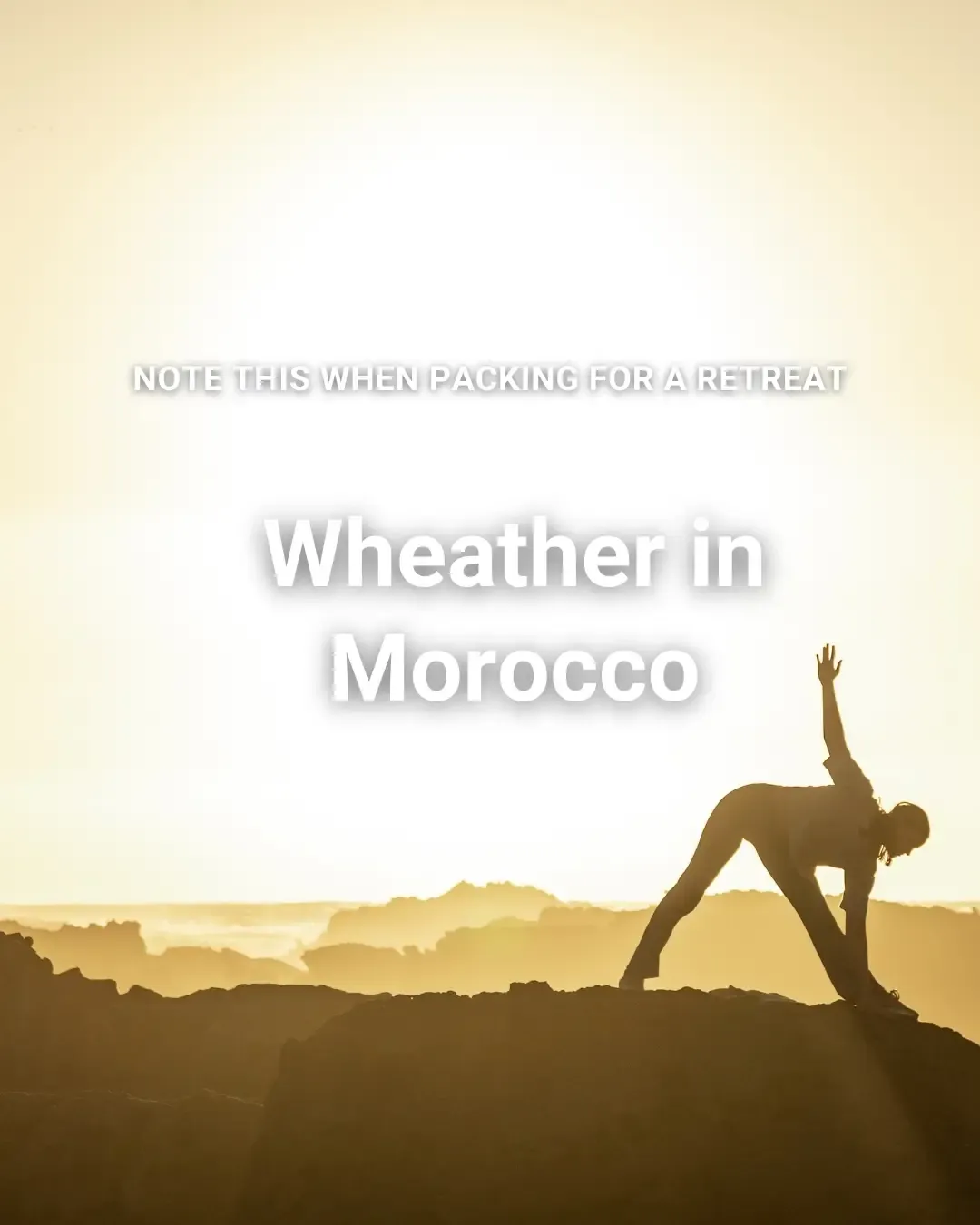
The best time to travel to Morocco is either September-November or March-May.
In the summer in Morocco it is really hot and there are a lot of tourists, so I recommend traveling at least a little outside the tourist season.
The sun also shines in December-February, but depending on the place the temperature is around 15-20 degrees.
(For example, inland Marrakech is warmer than on the coast.).
Best destinations in Morocco – travel tips
Discover all my favorite destinations in Morocco in the Morocco Destinations article:
1. Sahara Desert, Merzouga
2. The Magical Blue Town, Chefchaouen
3. Atlas Mountains
4. Marrakech
5. Surf Town, Essaouira
6. Casablanca - Morocco’s Largest city
7. Colorful and Exotic Fez
8. Ait Benhaddou, Dades Valley, and Todra Gorge
9. Rabat - The Capital of Morocco
10. Tangier – Port city in the North
11. Agadir, laid-back beach town
12. Ifrane - Snowy Morocco
13. Meknes
14. The Ouzoud Waterfalls
Here's a little overview of must-see Moroccan destinations
Marrakech

Perhaps the most famous tourist destination is Marrakech, but for a good reason.
Marrakech's wonderful riad accommodations, museum attractions, Berber-style crafts, spices and many restaurants, as well as the freedom of dress, etc. make the destination meaningful and interesting.
Moroccan Sahara – Merzouga
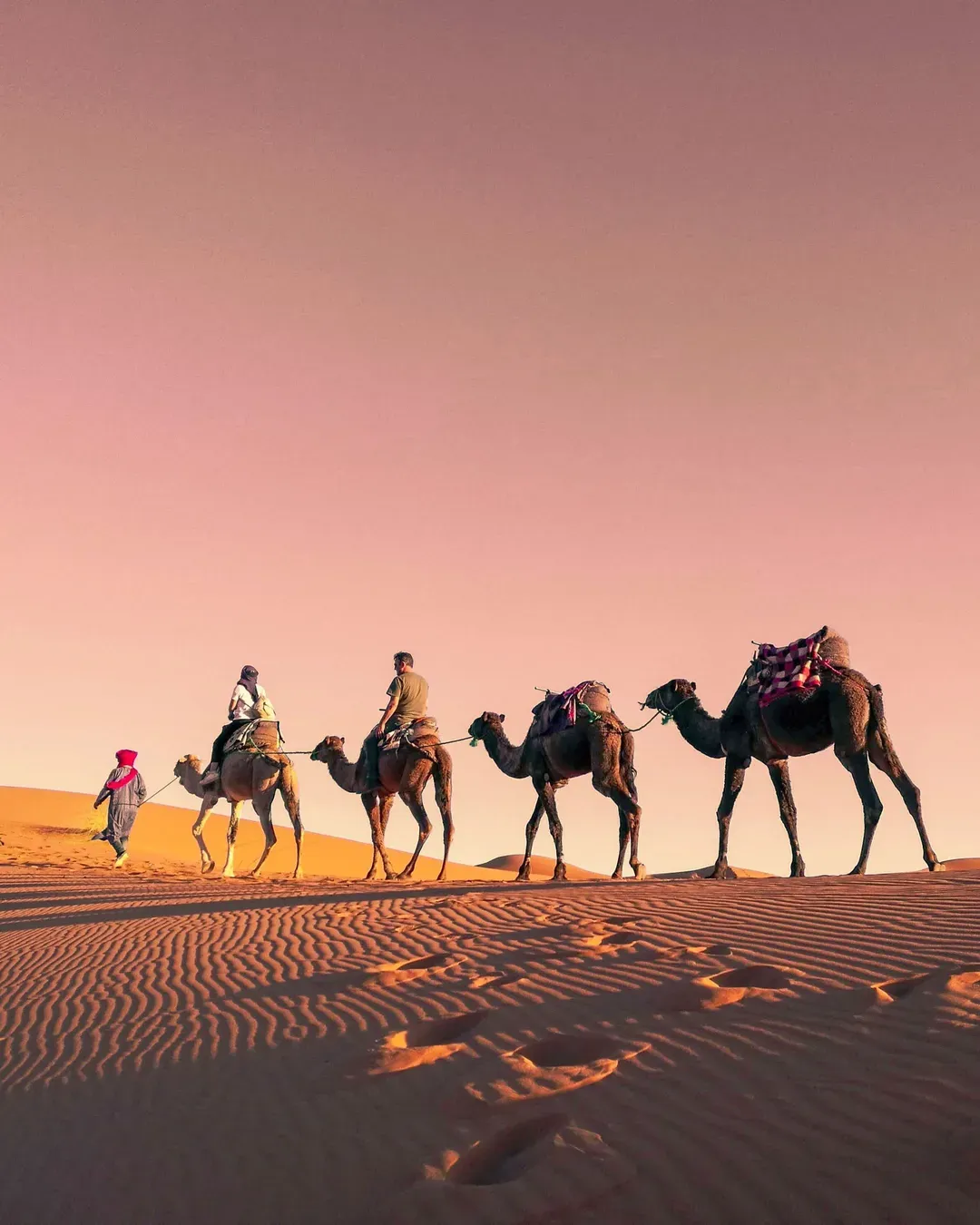
The most amazing thing about Morocco in my opinion is traveling to Merzouga and the desert.
You can ride a camel in the desert and stay overnight in luxury tents, with meals served.
During the day you can surf the sand, travel by camel or quad bike to a nearby village, or enjoy the silence of the desert.
In the evening you can enjoy the starry sky above the Sahara, a campfire, good Moroccan food and stories or live music.
Blue City Chefchaouen
Chefchaouen, a mountain village painted almost entirely in blue, is one of my favorite destinations in Morocco. It's a beautiful place and there are some great riad accommodations available at great prices.
I highly recommend this Riad where we stayed - the views are amazing in the evening.
Moroccan coast
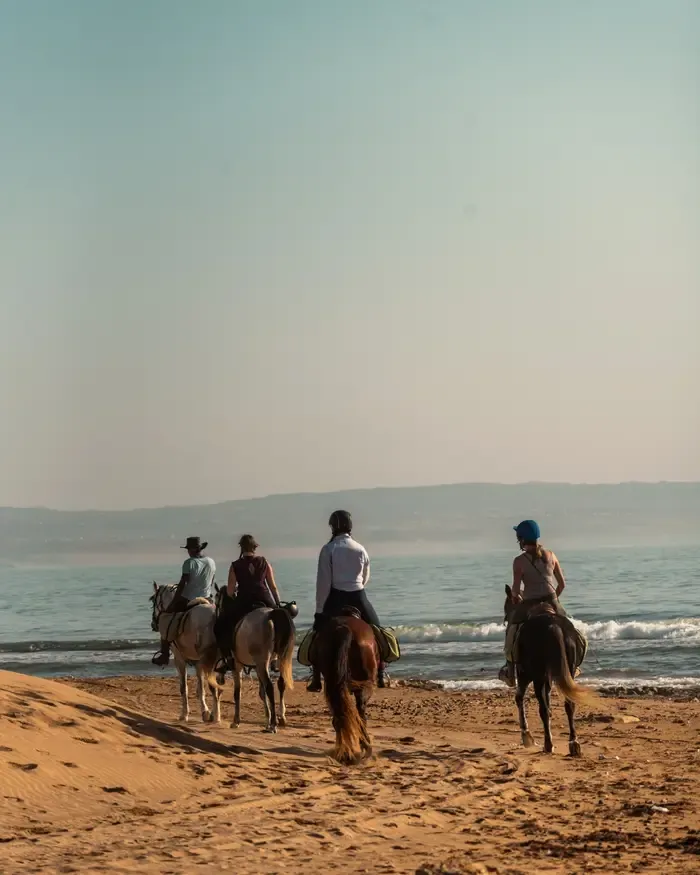
If your vacation must be a beach vacation, Morocco has great beach destinations like Essaouira, Taghazout, or Agadir.
Here you can surf, swim, enjoy sunsets, or take part in a yoga retreat.
Fes
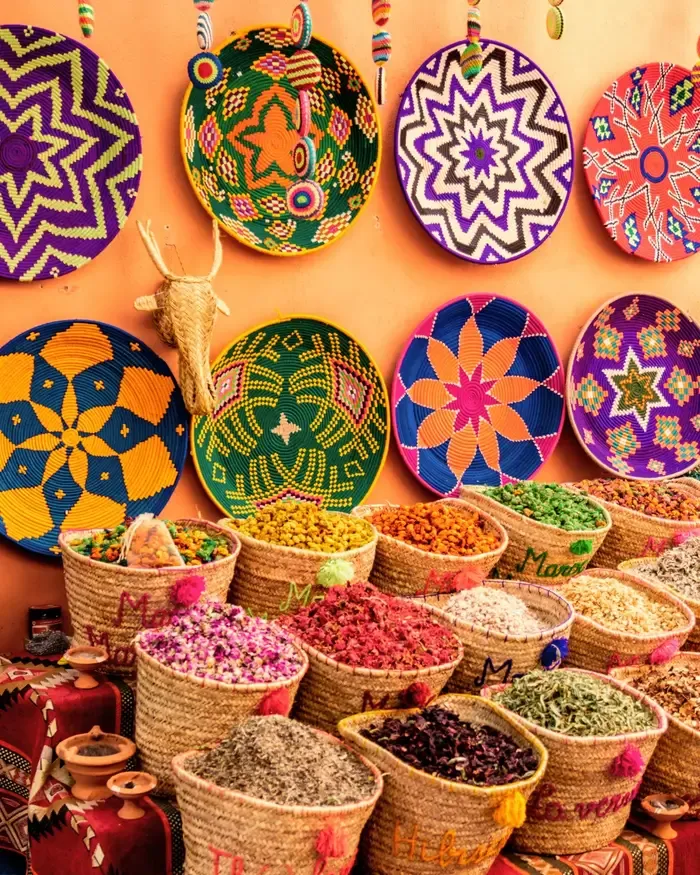
Fes is an interesting city destination because of its history, culture and Medina.
Middle Atlas Mountains
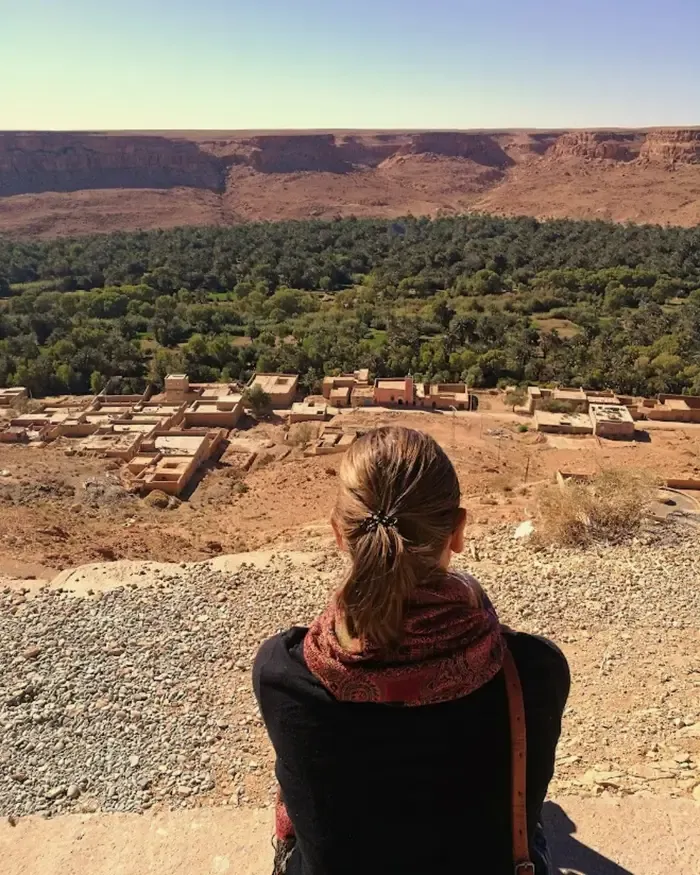
Morocco's nature is very diverse, and in addition to the desert, Morocco also has the snow-capped Atlas Mountains.
For hiking and admiring nature, I recommend exploring this in more detail.
Continue your travel planning to Morocco for a Mindful holiday
WRITTEN BY

Hey there, I'm the Author
I'm Sini, a digital nomad and an enthusiast in slow traveling, yoga retreats, travel as self-growth journey and rubbing dogs.
This is your go-to slow travel corner of the internet.
I'm here to share my best travel tips, the dreamiest places to go to and photographs from my journeys.
I happen to be kind of a professional in this as well, as I have my Master's degree in Tourism Research, and both my master's and bachelor's theses are about wellness travel.
I want to share the hidden gem hotels, dreamiest retreats and mindful destinations, as well as some deeper travel stories and thoughts on what mindful travel actually is.
With my job as a content creator for wellness travel brands, I have some great places to share with you on this beautiful globe.
Welcome to dive into your most meaningful journeys - join the newsletter if you want monthly slow travel inspiration.
You can read more about me here.
LATEST BLOG POSTS
GET YOUR FREE WELLNESS TRAVEL STARTER KIT
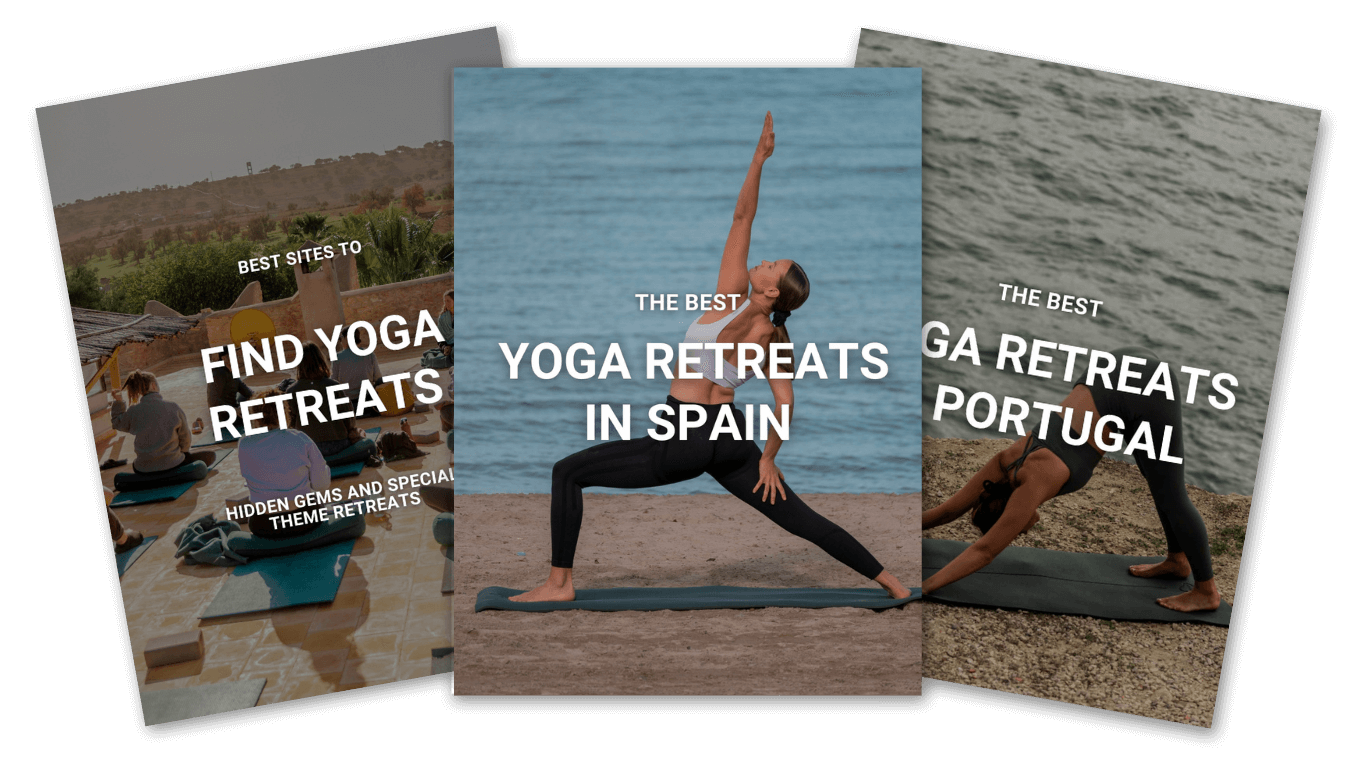
SERVICES
The site contains affiliate links.
This does not bring any costs for you, but I may get a tiny comission to cover the site costs to provide free content if you utilize them. Affiliate disclaimer
© Copyright Slowtravelrepeat 2025


